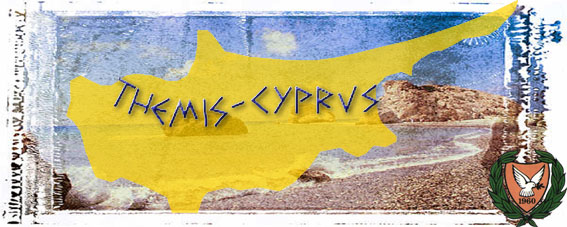

An HEC Project
THE FOURTEEN-ISSUE PROGRAM - A
TURKISH VERSION OF "THE EMPERORS NEW
CLOTHES
In 1999, Turkey was accepted as a EU candidate and would be allowed to begin admission negotiations if the country would comply with the Copenhagen criteria.
On August 1st 2002 Turkish Parliament, drawing great foreign attention, accepted the so-called "fourteen-issue program". Some international politicians have called this program an important step forward for Turkey. Those who have expressed such views cannot possibly have given this issue much attention. The program is designed in an insidious way, aimed at misleading the European public opinion and European politicians.
Since 1936, it has been prohibited for Christian foundations and congregations to own real estate. According to the new program this prohibition is now abolished. But this is a change only on the paper, since the following conditions have to be met by the Christian foundations and congregations:
- The congregation must prove to the Minister Council that there is a need and an economic basis for such ownership, and the Minister Council has to give its approval for such ownership.
- The congregation may not in any way establish contacts with foreign help-organisations without the approval of the Ministry of the Interior, the Foreign Ministry and the Minister Council.
Considering that these regulations only apply to non-Muslims (ownership of real estate for Muslims is free from such restrictions), the regulations must be considered strongly discriminating. Since 1936 hundreds of buildings have been confiscated by the State and used for other purposes. There has been no mention what so ever of returning the properties confiscated under the law of 1936 to their rightful owners.
Regarding the right to education in one's mother tongue, it has been said that the new program now establishes this right for the Turkish minorities. It is correct that such a principle right has been accepted, but the restrictions surrounding it make it practically useless.
Turkish citizens will have the right to learn foreign languages and dialects:
- Only in private classes,
- Only if the National Security Council has authorised every class,
- Only if the class is approved by the Minister Council, and
- Only if the content of the class is approved by the Ministry of Education
All now implemented rights are limited by the same extensive restrictions and also of the general restriction that none of these rights may be used in conflict with the unity and safety of the nation or other "holy cows" in Turkey.
It has also been pointed out that Turkey has abolished the capital punishment. The amendment is however only valid in peacetime. This is in conflict with the European convention of human and civil rights.
None of these amendments are protected by the constitution; they are only ordinary acts of legislation, which can be abolished at any time. The granting of permission to exercise the rights in each case has been put in the hands of the highest political power.
The amendments have been so thoroughly surrounded by conditions and restrictions, that, as a result, it seems highly unlikely that any real amendments at all was intended by the Turkish side.
Turkey has during all years delayed necessary changes and even the so-called fourteen-issue program is in reality such a delay.
ACSA Assyrian-Chaldean-Syriac Association
Södertälje, August 5th 2002.
Özcan Kaldoyo Jakob Rohyo Olle Wiberg Järnagatan 6 B 151 72 SÖDERTÄLJE Sweden Tel: + 46 8 55084983 Cell Phone: + 46 70 8722533 Fax: + 46 8 55076096 E-post: kaldoyo@spray.se
Copyright © 2002 HEC All Rights Reserved (server HEC1)